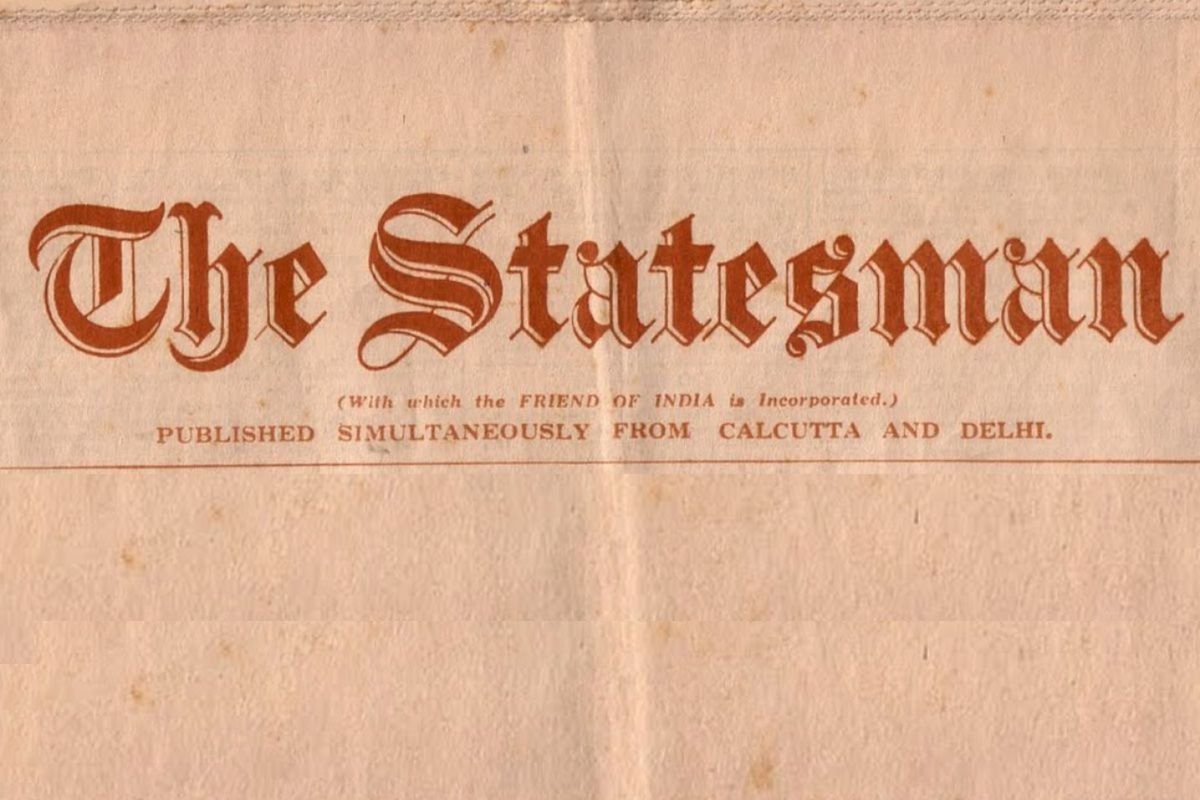OCCASIONAL NOTE
It is easy to understand, and even sympathise with, the aggrieved attitude adopted by Sir William Marris in replying to the ingenuous speeches of Messrs. Khaparde and Chanda during Thursday’s discussion in the Imperial Legislature on the rules and regulations to be framed under the Government of India Act. As usual Messrs. Khaparde and Chanda had totally failed to look at the matter from the Government point of view, which, ever since the “momentous” utterance of two years ago, has been that there is no time for a proper, or even improper, discussion of any of the questions at issue. As Sir William pointed out, almost with a catch in his voice, “they had only a few months left before them, after which the Prince of Wales would be here to inaugurate the new era.” How, in such circumstances, could Messrs. Khaparde and Chanda be so unreasonable as to demand a committee which would undoubtedly take “a very long time before they could finish the task?” It may be perfectly true, as Mr. Chanda urged, that the rules to be framed were even more important than the Act itself, but it is somewhat late in the day to expect this argument to weigh with a Government who have grown accustomed to the breathless methods of Mr. Montagu, Lord Southborough, and their fellow reformers.
Advertisement
BANK OF BENGAL
The Directors of the Bank of Bengal, at their meeting held yesterday morning, declared a dividend to shareholders for the half-year at the rate of 17 per cent per annum. The profits available – after providing for the payment of a bonus to the Bank’s working staff, European and Indian, of half a month’s pay – including Rs 5,51,065 brought forward from the previous half-year, amounted approximately to Rs 29,25,442 which sum was disposed of as follows:- Payment of a dividend of 17 per cent per annum, free of income tax, Rs 17,000,000; transferred to reserve fund, Rs 6,00,000; transferred to gratuity and pension fund Rs 1,00,000; carried to next half-year, Rs 5,25,442. The average rate for demand loans during the half-year was 5 per cent.
THE PRESS ACT IN BURMA
The Burma Government have issued a lengthy communiqué dealing with false statements appearing in the Daily Herald, London, regarding the application of the Press Act in this province. It is shown that the action taken was by no means the fullest within the local Government’s powers. Neglect to notify change of management was not made an occasion for prosecution. The Chief Court has confirmed the District Magistrate’s order in one case and in the other the accused editor pleaded guilty. The suggestion that the Local Government “acted on the military principle that criticism of the Government is dangerous, immoral, and illegal” is repudiated. The Government claim that they have, so far from attempting to put down discussion, kept in close touch with all shades of Burmese opinion.
FRENCH LOAN
The Chamber adopted by 491 votes to 61 the Loan Bill, which will be issued in the form of five per cent bonds, redeemable in sixty years, by half-yearly drawings. The bonds drawn will be reimbursed at a hundred and fifty francs per hundred francs of capital. The Minister of Finance said that the total revenue for 1919 amounted to over eleven milliards of francs. He estimated that the increase in the taxpayers’ burden would amount to 75 per cent. The taxpayers would have to face a super-tax of seven thousand millions. The French loan would be issued in England in March. He declared, amid approval, that there was no reason why goods should be obtained from America and Great Britain when they could be procured on favourable terms from Germany.
RANGOON MILL OPERATIVES
The Rangoon mill operations have held large meetings recently under the leadership of the Bengal Mahomedan Association to demand better terms of pay and working conditions, especially a reduction of hours and payment for overtime and Sunday work. The response of the mill-owners not being considered satisfactory, the last meeting passed a resolution that the men would refuse to work under present conditions. The men demand an all round increase of fifty per cent, hours to be reduced to eight per week day, overtime for more than eight hours and for Sunday, and better sanitary and housing conditions. It is reported that one large firm offered a bonus of one month’s pay, which was refused. Mr. Clarence Hamlyn, a European barrister and municipal commissioner, presided at all the three meetings.
THE HANDLING OF THE FRONTIER CAMPAIGN
Commenting on the events on the NorthWest Frontier, the Daily Mail and Morning Post both criticise the handling of the Afghan campaign, and the subsequent peace. They also dwell on the unfortunate episodes, for example, the disaster at Jandola, the raids on the Thal-Kohat railway, and on cavalry lines at Kohat. The Daily Mail says: We seem to be witnessing another break-down in the Indian military system. The true remedy appears to be to sweep the whole army administration out of Simla and bring it down to the plains. Hill-top control has been the curse of the army in India.











